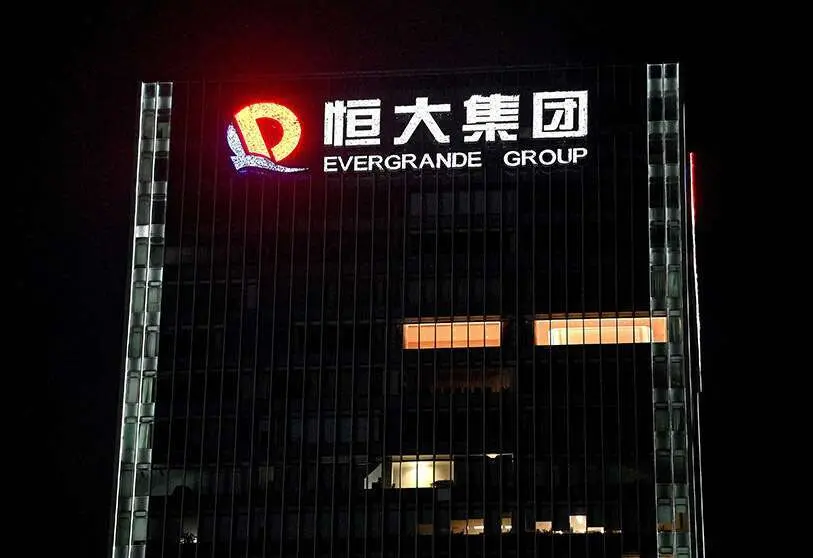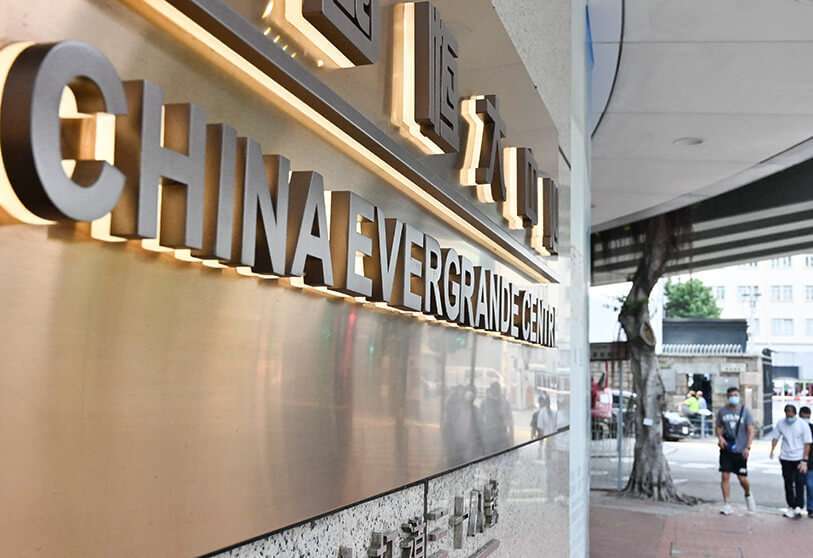Evergrande faces the abyss of bankruptcy

In September 2008, the bank Lehman Brothers filed for bankruptcy. Crisis. The implosion of the fourth largest bank in the United States brought with it the definitive bursting of the real estate bubble and provoked a global contagion that led to the Great Recession, the consequences of which are still present today. More than a decade later, China's largest real estate company, Evergrande Group, is looming over the abyss and threatens to cause a cataclysm of similar proportions.
Experts shy away from such comparisons. Partly because the company's financial exposure is concentrated in China and, in the event of a fall, Beijing still has limited room for manoeuvre to mitigate the impact. What no one doubts is that, in the words of the chief Asia economist at the independent consultancy Capital Economics, Mark Williams, the collapse of Evergrande would be "the biggest test the Chinese financial system has faced in years".
Evergrande Group is an octopus with multiple tentacles over the Chinese economy. The company, founded by businessman Hui Ka Yan in 1996 under the name Hengda Group, operates through eight parent companies in the tourism, audiovisual, automotive and healthcare sectors, among others. It even has its own brand of mineral water. Its total assets amount to 303 billion euros and a turnover of more than 92 million euros.
Evergrande employs a total of more than 200,000 people and its real estate investment is spread over 280 cities in more than 1,300 projects. Its weight in the Chinese economy is equivalent to 2% of the national GDP and it operates as the second largest real estate developer in the country. These figures have earned the company and its owner the recognition and preferential treatment of the Chinese Communist Party (CCP).

Hui himself, the son of a carpenter and one of the first university students in the country after Mao Zedong's Cultural Revolution, has been a member of the party for 35 years and has, at least so far, the backing of President Xi Jinping's politburo. The Chinese leader is united by his passion for football, which explains the purchase in 2010 of the Guangzhou team, the southern city where the company flourished, and his millionaire investment with the signings of Robinho and Cannavaro.
The tycoon has a net worth of close to $22.3 billion, according to the Bloomberg Billionaires Index, and has never shied away from his ambitious projects. Evergrande's strategy was in line with Beijing's aspirations to make China the world leader. In fact, the estimates drawn up by the company for 2022 pointed to exponential growth that placed Evergrande among the 100 most important companies on the planet. Today it is among the 500 most valuable companies in the world.
On 31 March, Evergrande's chairman said that a large part of the company's shadow loans were actually the debt of smaller companies whose real estate projects were absorbed by the company, and said the level would decrease when those projects were sold. He also conveyed that the real estate company had no dollar bond repayment pressures for 2021 and that it had been able to refinance much more in the past than the amount maturing in 2020. A version far from reality.
In August 2020, Evergrande had sent a notice to the authorities revealing a potential liquidity crisis that could lead to cross defaults. The letter was made public and its veracity was confirmed by Bloomberg, however, the company questioned its origin. That same year, the Asian giant weathered the crisis after a group of investors waived their right to force a $13 billion repayment.

But the company has more debts. Evergrande is, in fact, the most indebted development company in the world. A reason that, together with pressure from Xi Jinping's government in its crusade against real estate speculation, forced the company to launch a debt reduction plan based on asset sales and share offerings. The strategy, however, has not been effective.
The forecasts of the credit rating agencies Fitch Ratings and S&P Global Rating foresee a debt default. The deadline is next Thursday, when the company must pay 71.6 million euros. The total debt to be repaid in the next 12 months amounts to 105 billion euros, according to the business daily Caixin. The same newspaper puts Evergrande's debt at 263.5 million euros at the end of July, in addition to an unknown amount of debt that does not appear in the accounts.
The company's sales and construction operations are blocked. Hence, Evergrande has offered a 30% discount on property sale prices. In addition, the company announced via the Chinese social network WeChat that investors who want to have their wealth management products repaid with tangible assets can contact their investment advisors and choose from flats, offices, commercial spaces or car parks at a reduced price as a method of repayment. Unheard of.
The company's shares plunged 10.63% on the Hong Kong Stock Exchange on Monday, their worst trading level in more than a decade. The company's total stock market decline is more than 88% over the past year. However, the Hong Kong stock market has withstood the impact on Tuesday, which has spread to other markets globally, but which has encouraged Hui, who has not hesitated to ensure that the company will overcome "its darkest moment".

The company's founder and main shareholder attributed the stock market collapse to the consequences of COVID-19 and "unfair" media coverage. However, he has been backed by the other three Chinese tycoons. The Big Two Club, known as the Big Two Club because of their fondness for the Chinese poker game of the same name, comprising Joseph Lau of Chinese Estates Holdings, Henry Cheng of New World Development and Cheung Chung Kiu of C C Land Holdings, did not hesitate to prop up Evergrande's debt to protect the sector.
The United States let Lehman Brothers fall. The question is whether Xi Jinping's government will follow suit. In principle, Beijing could intervene directly or through provincial governments and state-owned enterprises. Some media reports suggest that the politburo has instructed the authorities in Guangdong, the province where the company is based, to draw up a plan to support the company. There is also talk of a possible temporary reprieve. Meanwhile, in the Chinese media, the law of silence has been imposed.
The People's Bank of China resumes daily open market operations on Wednesday. The authorities will wait until then to give any clues as to the final decision, although experts sense that there will be a bailout for a strategic company that spans China's financial system. This action, however, could send the wrong message in favour of precipitous borrowing. The decision is in the hands of the CCP. The globe is on tenterhooks.








